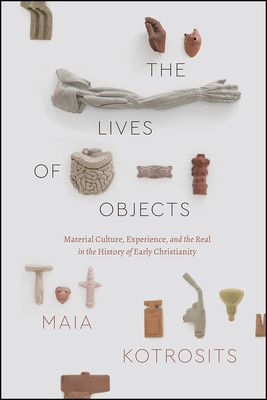
- We will send in 10–14 business days.
- Author: Maia Kotrosits
- Publisher: University of Chicago Press
- ISBN-10: 022670758X
- ISBN-13: 9780226707587
- Format: 15.2 x 22.9 x 1.4 cm, softcover
- Language: English
- SAVE -10% with code: EXTRA
Reviews
Description
Our lives are filled with objects--ones that we carry with us, that define our homes, that serve practical purposes, and that hold sentimental value. When they are broken, lost, left behind, or removed from their context, they can feel alien, take on a different use, or become trash. The lives of objects change when our relationships to them change.
Maia Kotrosits offers a fresh perspective on objects, looking beyond physical material to consider how collective imagination shapes the formation of objects and the experience of reality. Bringing a psychoanalytic approach to the analysis of material culture, she examines objects of attachment--relationships, ideas, and beliefs that live on in the psyche--and illustrates how people across time have anchored value systems to the materiality of life. Engaging with classical studies, history, anthropology, and literary, gender, and queer studies, Kotrosits shows how these disciplines address historical knowledge and how an expanded definition of materiality can help us make connections between antiquity and the contemporary world.EXTRA 10 % discount with code: EXTRA
The promotion ends in 20d.13:27:24
The discount code is valid when purchasing from 10 €. Discounts do not stack.
- Author: Maia Kotrosits
- Publisher: University of Chicago Press
- ISBN-10: 022670758X
- ISBN-13: 9780226707587
- Format: 15.2 x 22.9 x 1.4 cm, softcover
- Language: English English
Our lives are filled with objects--ones that we carry with us, that define our homes, that serve practical purposes, and that hold sentimental value. When they are broken, lost, left behind, or removed from their context, they can feel alien, take on a different use, or become trash. The lives of objects change when our relationships to them change.
Maia Kotrosits offers a fresh perspective on objects, looking beyond physical material to consider how collective imagination shapes the formation of objects and the experience of reality. Bringing a psychoanalytic approach to the analysis of material culture, she examines objects of attachment--relationships, ideas, and beliefs that live on in the psyche--and illustrates how people across time have anchored value systems to the materiality of life. Engaging with classical studies, history, anthropology, and literary, gender, and queer studies, Kotrosits shows how these disciplines address historical knowledge and how an expanded definition of materiality can help us make connections between antiquity and the contemporary world.

Reviews